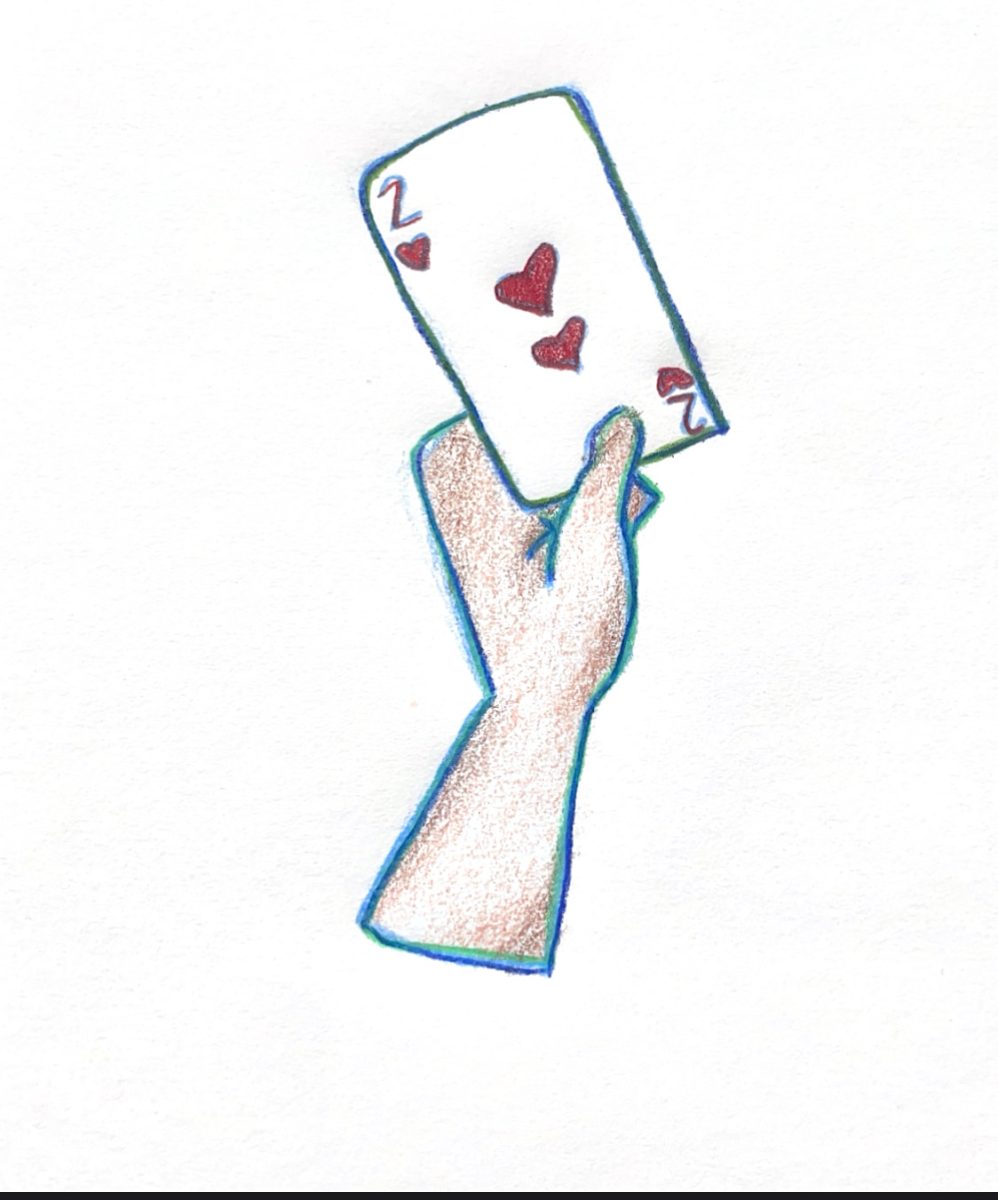Gambling is easily accessible, highly addictive and a deep rabbit hole people should avoid. Scratch-off tickets, cards, dice, board games, betting and games of personal skill are all forms of gambling. As adolescents, we often played similar games, exposing our young and developing minds to these addictive activities.
The National Council on Problem Gambling has reported that 60% of Texans have gambled in the past year and 14% fit the criteria of having a gambling problem and showing signs of addiction. Teenagers exhibit double the rate of gambling issues because of their impressionable, developing minds. Journal Gambling Studies reports that when you gamble, the body releases dopamine as challenging tasks are completed.
When gambling, regions in the brain can become dysregulated. When losing, the left hemisphere, associated with logic and memory, is active, whereas winning ignites the right hemisphere, which is associated with controlling feelings and imagination. Near misses, not wins, stimulate the nucleus accumbens, the brain’s center. Completing the circuit is the stratum responsible for impulses, letting us know that we need to seek pleasure.
The Yale University School of Medicine conducted a study that analyzed the risks associated with gambling at a young age. Having parents who gamble, the age of first gambling activity, possessing greater impulsivity, substance use and family and social background can all factor into increasing one’s risk of developing a gambling problem. 3% of Americans have a gambling addiction; it is more common among college students and underage users. Mental health issues, academic and social consequences and financial problems are what come with gambling addiction in adolescents.
Brain development between the ages of 10 and 19 is known for exhibiting an increase in risk-taking. The nature of gambling preys on the weaknesses of the brain. Flashing lights and sounds coupled with drugs can sway anyone to make impulsive decisions. Losses can be much more than financial if there is no strategy for the madness. However, this damage can be reversed. Dr. Rayyan Zafar, researcher for the Department of Brain Sciences, goes all in on psychedelic research. “We want to find out if psilocybin therapy can reverse or restore the dysfunction that we see in gamblers’ brains,” Dr. Zafar said.
According to Caller Times, Governor Greg Abbott views gambling as “just a form of entertainment.” If Bill 2843 is passed by the House, it would authorize the state to regulate and commission gambling facilities. In combination with Bill 1942, which mandates all companies to obtain a permit for operation, individuals can expect to see a decline in cognitive performance.
San Antonio is ranked as the 18th saddest city, and a gambling addiction is not what Texas needs. Jobs are needed; hotels, valet, food, transportation, entertainment and sports jobs would be available if casinos were built, but there does not need to be a chance of massive debt attached to a lifestyle to get citizens to work. Jobs can exist without the negative effects of adding alcohol and gambling to the mix. Communities thrive when drugs, alcohol and organized crime are controlled and not allowed to operate legally.
The Powerball is set at $63 million and has no plans to decrease. The money Americans lose is in the billions. The enticing aspects of gambling can detach them from reality, creating an illusion of excitement and risk. Instead of betting the odds against the House, take a gamble on improving the game against corrupt bureaucracy.







